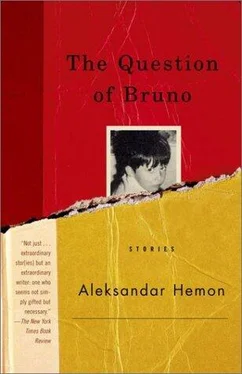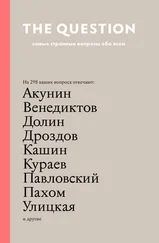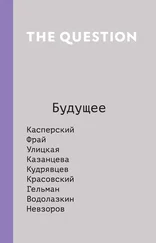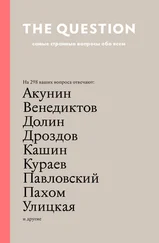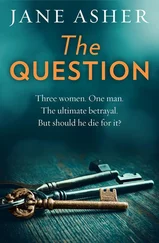In the morning, he would wake up in pain, and proud of it. He would sit on the only chair and eat cereal and milk out of a leaking wooden bowl between his knees (he hadn’t had enough to buy a table), and watch a morning sunbeam coyly entering his apartment, like a curious squirrel. Oh, the nippy mornings of the 1996 spring. The warm winds peeled off the snow cover, but there were still decaying snow patches around, like spit-foam. As he was riding somnolent buses down Devon on his way to the El that would take him to work, his past nightmares transmogrified into the haze of the morning present. He watched the street gliding by, looking for signs that he was awake and, indeed, alive: a revolving breasted bust in the wedding-dress store window; Beanie Babies piled up in Noah’s Ark; women in saris walking down Mozart Street; World Shoes; East-West Appliances; Universal Distributors; a man in a white shirt installing a bucketful of roses in front of his flower shop; Cosmos Press; Garden of Eden Cocktail Bar; leaflets taped to light posts, signposts, mailboxes reading “Pray for wisdom for Mike”; Miracle Medical Center; Acme Vacuum; a tailor-on-duty sign held by a tailor dummy. Every morning was like the first morning, because Pronek would forget the morning at the end of the working day.
One morning in April, Pronek saw, through the mizzly curtain, the tailor dummy waving at him. He decided to go to Sarajevo, because he realized it was all right, because the incredible thing was that every place had a name, and everybody and everything in that place had a name, and you could never be nowhere, because there was something everywhere. The only way, Pronek thought, to be nowhere was not to be at all.
How is this related to his decision, we cannot fathom.
In any case, he saved up a little more money, bought a plane ticket, and flew to Sarajevo, via Vienna, in May. Presently, we will give him his voice back and let him talk for himself. Ideally, of course, he would speak in his native language, but, unfortunately, that is not possible. Here are, then, his authentic, fresh, and realistic experiences:
As the plane was descending, I saw ochre patches, like scars, in the greenness of the mountains.
The houses along the runway were bullet-ridden, and as the plane was touching down, I felt as if I were inside of a bullet speeding toward the target.
I gave my passport to the man behind the glass pane. He looked at the passport, then he looked at me, then he looked at the passport. Be-hind his back, there was a young man in a dusk-blue suit and a tie as thin as a wicker. He had a cellular phone, and glanced around, monitoring the arriving passengers. Then he leaned over the uniformed man’s shoulder, glanced at my passport, then at me. He was a spook.
Dobrinja, across from the airport, looked like it was marauded by a world of ravenous termites. It looked built of holes and about to crumble. There was yellow tape stretching everywhere, reading “Mines.”
The cab driver did not turn on the taxi meter and I suggested he should do it. He said, with a gorgeous mumbling Sarajevo accent, What are you worried about? You’ll pay. But how will I know the amount, I asked. You’ll know, you’ll know, he said. We argued, until he pulled over, turned toward me, unbuttoned his shirt to show me a scar near his navel and said, Listen, I didn’t spend four years in the trenches, defending this city, to turn on the taxi meter now, all right? All right.
Building after building pockmarked with bullet holes, gouged out windows and lives that used to go on in those apartments, piles of rubble, burnt cars, burnt buses, burnt kiosks, burnt streetcars. This is the movie theater where I saw Apocalypse Now for the first time, burnt.
As soon as I stepped out of the cab, I saw Aida. I hadn’t seen her for years. When we were kids, she drew a heart on her forearm and inscribed my name on it, with a ballpoint pen. I was happy to see her, I hugged her. She was married, she had a son, born in the middle of the siege. I was so happy to see her. How is life? I said. How is your mother? Her mother used to make heavenly baklava. Her mother was killed, she said, by a sniper, at the beginning. She saw it, because her mother ran ahead of her across a sniper-watched street, she was struck and killed instantly.
My mother and my father were waiting in front of our apartment building. My father embraced me, and we stayed locked, saying nothing. Then my mother embraced me, and she wept and wept.
A bullet had hit my father in the left cheek and then had simply gone out the other side. He had two scars on his cheeks, like two symmetrical warts, and he lisped now. He said, Had I had my mouth shut, I would’ve been dead. The Kalashnikov bullet is very light, he explained, but has a high velocity so when it gets inside the body and hits the bone, it doesn’t stop, it ricochets around, tearing everything apart. See, he said, if the bullet hit my teeth before it went out, it would have bounced around all over my head, shredding my brains, until my head was all mushy inside, like a watermelon.
I went through my parents’ apartment, touching everything: the clean, striped tablecloth; the radio, with seven ivory-colored buttons and a Donald Duck sticker; the grinning African masks; the carpets with intricate, yet familiar, geometric patterns, full of gashes, from under which the parquet was gone, burnt in the rusty iron stove in the corner; the demitasse, the coffee grinder, the spoons; Father’s suits, damp, with shrapnel slashes; the black doorknobs, the cuckoo clock, now defunct; the crystal vase, the complete works of Joseph Conrad, half of which were gone, burned in the stove; the dripping faucets; the pictures, black-and-white and color. There’s the three of us on the beach in Makarska, my mother on the left with a scarf and dark sunglasses, my father on the right with a cigarette dangling from his mouth, me in the middle, sitting on a confounded, sad donkey with a sombrero on its head.
There were no windows in the room that used to be mine. Instead, there were nylon sheets, with UNHCR written on them, in blue, orderly letters, flapping and bloating in the wind.
I went out for a walk with my mother. My father didn’t like to go out anymore, except for work, because he always felt that someone was watching him. She showed me where Vera, their neighbor, was killed. As soon as Mother and Vera stepped out of the building, arm in arm, Vera was hit in the heart and swirled to the right, my mother showed me the pirouette, and she just dropped right here, still clutching her purse, and then she throttled, spewing blood. I didn’t know what to do, my mother said.
On the pavement, all over the city there were roses — the points of the shell impact. A tiny crate and a few straight lines, of uneven length, like sun rays on a child’s drawing.
There was a rose of the shell that massacred the bread line on Ferhadija. Amela, a friend’s daughter, died there. A piece of shrapnel entered through the back of her head and burst out through her face, taking it apart. Adil, her father, operated on her himself, putting her face together, so they could bury her properly.
There was graffiti on the wall by “Egypt”: “Samir loves D.” Who was D? Where would she be now?
I looked at Trebevic, a peaceful mountain now, dark and silent. My father pointed at it. The Chetniks could see us like the palm of their hand, he said. Right above the roof line, he showed me, was the front line, a thin gray thread in the green, barely discernible.
I thought I would never see you again, Veba said. He lost about thirty pounds. There was not much to eat, you know. Rice or nothing, he said. I had to climb up to the fifteenth floor to get to his apartment. The next door apartment was hollow, charred black, pigeons nesting and cooing. Veba spent the war in the Bosnian army, but now he wanted to go to Canada.
Читать дальше
